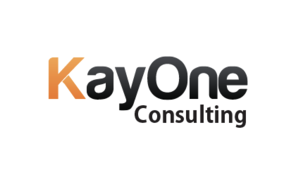Co-Founder Interview Questions: 10 Things You Must Ask
There has been a significant rise in the number of start-ups. The start-up founder prefers keeping their friends or relatives as co-founders, thinking their partnership will run the business successfully.
Does that happen every time? No, not in every case. Many factors impact a venture, especially when it’s an early-age start-up. Here, the prominent owner should schedule a proper interview with the co-founder, asking questions to ensure their collaboration and leadership style can benefit them and their business.
Who is A Co-Founder?
A Co-founder can be described as a person who shares the partnership of any corporate entity with the assistance of other people. When you are looking for a co-founder, you are essentially looking for someone with complementary skills and experiences. You are looking for someone who is looking to explore opportunities and build good business models. Their responsibilities revolve around:
Discovering New Market Opportunities
A co-founder spends a lot of time discovering new market opportunities and researches which areas can benefit their early stage start-up the most and a bigger picture of the market they plan to target and attract with their business.
Final Product Developer
The partner works in perfect sync with the principal founders while launching the product and takes constructive feedback to improve their product during the MVP and beta stages.
Hiring Best Resources
Hiring the best resources or building a team is fruitful in adding value to the entity and development of the organization. Therefore, co-founders look after the hiring process well to recruit the perfect candidates to boost the business.
What is a Start-up?
The name hints that it’s a comparatively new market venture founded, built, and run by solo or multiple entrepreneurs. Their primary goal is to stand out in the field through their unique and creative services and products that even the competitors find challenging to replace.
Co-Founder Interview Questions: What You Should Ask?
The real challenge lies in getting on board such a co-founder whose thinking aligns with your business theory, has good problem-solving skills, excellent leadership qualities, communication skills, and works on a day-to-day basis to contribute to making your company’s future.
If you are considering hiring a person outside your fraternity, then as a founder, you should feel comfortable asking the following questions in an interview because you certainly don’t want to take any risk and lose all your investment in one go, primarily due to a weak or lousy partnership.
Why Do They Want To Join Hands With You?
If the job description of the co-founder you are looking for has gathered an extensive line, ask the potential partner why they are interested in joining hands with you to build the start-up. What is their motive? It can be general or something in particular. You never know the intentions of the other party.
What is their Motivation to Share Your Venture?
Every candidate has some motivation to be a part of any venture. Be it a regular office employee or co-founder for any new corporate landscape. Inquire what made them come to your company only.
Evaluate if they are a good cultural fit – do they share the same values as you do? Are they facing any financial issues and need some support? Do they simply like challenging themselves to test their ability to survive in the market? Are they helping anyone through this?
How Do They Deal With Stress?
Businesses, especially start-ups, bring in different challenges. You must keep adapting and updating yourselves to the constantly changing marketing trends and consumer behavior. Customers have a tough time trusting new firms, which impacts your sales, too. Here, you should ask the co-founder how they deal with stress.
What will their action plan be if they cannot meet their defined set of targets? How do they utilize them if they become free from their assigned tasks? Your co-founder must be prepared to answer the list of questions for you to consider for the next round.
Do They Have Any Such Skill That Might Surprise You In The Long Run?
Another start-up interview question can be related to skill. The skill element can turn the tables for your business in a good and bad way. Ask your future co-founders what skills they possess that might surprise you as time passes. Their skills can benefit from running the business, or the graph can decrease. Therefore, it’s better to ask in advance to welcome them accordingly.
Will The Start-up Be Their Primary Activity?
You are the start-up founder who gave birth to the idea; therefore, being present in your venture will always be the foremost priority, but will it be the same for your co-founder? How can you tell or be so sure? Thus, clear your doubts through co-founder interview questions asking whether the start-up holds the same amount of importance as it does for you or is engaged in other outlets.
How Much Time Will The Start-up Need To Reach Its Peak Fully?
Launching a start-up and giving it the time needed to reach its peak can be challenging due to economic downturns. Discuss with your potential co-founder the time commitment that it might take months or years to grip the roots of the market entirely, and are they available to give that much time to the platform?
Apart from this, you may also exchange opinions on whether you will agree to sell the start-up once it gets its recognition in the market. If yes, then for how much? Decide a cost and exit the market once you have made the most out of your business.
Any Part of the Plan That Will Remain Unchanged?
During the co-founder interview questions, you must open up with the co-founder with whom you are considering collaborating. You came up with the start-up company and must have thought about many things, like the products and services you will sell to which target audience.
The partner will also bring their views to the table to change the target market or the product under construction. It is critical to clarify which aspect of the company will remain unchanged; this is how it will be the way it began. This will prevent misunderstanding and communication gaps between both owners.
Otherwise, in many cases, the owners are not on the same page, resulting in the company’s downfall and spoiling the brand’s image in the market and amongst consumers. You do not want this to happen.
How Will They Tackle The Situation If The Venture Fails?
Start-ups reach heights and fail, too. One of the primary reasons for business failures is a bad partnership. The owners ultimately shut down the operations for good when they do not meet the company’s vision and receive the expected outcome. The partners usually part ways and start with something new individually or allow a new party to enter.
If you find yourself in a similar situation, how will your co-founder tackle it, and what part of the firm will they remain sincere in? Will they come forward to help the venture or try to retain the company’s image and relationship with the stakeholders? Or the opposite reaction will be displayed?
Are They Good At Balancing Between Professional and Personal Life?
This can be tough, as many fail to balance their professional and personal lives fairly. People tend to take corporate stress to their homes and vent their frustration on their family members, which makes them distant from you. Ask your co-founder whether he can balance home and office well.
How have they done this at their prior workplace, and what mistakes did they identify that will not be repeated? Do they strive to achieve a good work life balance? You don’t want your start-up to be the core reason for increasing arguments in your co-founder’s personal life.
Where Do Their Strengths and Weaknesses Lie as a Leader and Co-Founder?
Nobody is perfect. Everyone has their strengths and weaknesses that are displayed according to different circumstances. A co-founder has them, too, and the owner must know about them. Prepare your co-founder interview questions surrounding this factor. Do they possess sufficient leadership skills that will benefit the work environment?
Can the team members come to them if you are not present? Will they be able to handle and address the queries of the company’s employees? Good co-founders must be a good fit for the company culture and have a welcoming approach that the employees can rely on when they are not there.
How Will They Describe Their Working Style?
Everyone has a distinct working style that sets them apart from other employees on the same platform. Are they easygoing? Do they take tasks seriously? Their answers will show how dedicated they will be to your company. Otherwise, you must request they leave and find a replacement sooner or later.
Where Should the Company Be Located?
If you, as a founder, are still doubtful about the current location of your start-up, then include this query in your co-founder interview question list: where should the company be located, looking at the audience it’s targeting? You never know that you might come across a co-founder candidate with good geographical knowledge who can give you better suggestions on where the firm should open to attract a particular market segment.
How Do They React to Conflicts?
Conflicts can be triggered between employees, managers, owners, and co-founders. It depends on how you react to them. Keep this question in your co-founder interview questions: how will the co-founder respond to conflicts? Will they calm down others? Or are they equally aggressive?
If they can peacefully resolve the conflicts, then that’s perfect because when such situations arise, the co-founder will act as a savior to maintain the composure of the work environment. Still, if they turn out to be harsh, that is a problem and will disturb the company culture. Be careful in picking your co-founder, as you don’t want to invite further issues.
How Will the Co-Founder Appreciate the Efforts of Other Employees?
Appreciating your employees is necessary. Why? Because these people are spending a large chunk of their lives typing documentation, attending meetings, and following your instructions. One of the interview questions is asking your co-founder how they will appreciate the efforts of employees working under them.
Will they arrange some events within or outside the office premises? Acknowledge and recognize their efforts verbally. Distribute customized gifts amongst them. It will be good to know how they will encourage team members.
Do they Feel Insecure Watching The Skills of The Owner? If Yes, How Will They Manage It?
Insecurities are portrayed on multiple levels, especially when one person lacks the skills the other person has. This leads to jealousy and cutting them out of your way since you consider their growth a threat to your success. Ask your co-founder through the set of co-founder interview questions whether they feel insecure looking at you as the primary owner of the start-up.
If their answer is affirmative, how will they manage it cautiously without displaying any hints, especially in front of other colleagues? It’s good if the co-founder’s insecurity ends with time; otherwise, there will be no unity between the two of you, causing a hindrance to maintaining a good company culture.
What Do the Previous Employers Say About The Co-Founder?
When you take references for your other employees from their prior employers, the same thing should be applicable when hiring a new co-founder, too. As a founder, you can contact the potential co-founder’s previous workplace, who can shed more light on their leadership style and skills. You will know whether he is a good fit, impeccable at managing teams, and comfortable expressing his opinions. The answers will clear your doubts, and you can decide accordingly.
What Type of Behaviour Do They Consider Unethical?
Every office has a code of conduct that has to be followed by all, irrespective of the level of seniority. However, some still misuse their powers in violating the rules and regulations. Include the question in the co-founder interview: what behavior does the co-founder consider unethical?
It can be opposite-gender harassment, abusive behavior within the professional premises, expressing foul language for your senior or junior, or even one of you can be involved in the case. They should tell you whether they have also experienced a similar situation. If yes, how did they clean their reputation? Plus, how will they set up a good work environment?
What Will be the Communication Approach if Agreed to the Partnership?
In partnerships, communication and respect for each other play pivotal roles. If you are hiring a co-founder for your venture, ask what the communication approach will be if both agree to the partnership. Will the co-founder speak ill behind your back? Criticize your work in front of other team members.
Correct during a meeting? How transparent can they be in expressing themselves if you are not present? Knowing how much your co-founder will respect you in these situations is essential. After all, it’s a matter of you and your firm’s image within the office.
Does Their Family Support The Idea of Working With A Start-Up?
It often raises eyebrows when people share with their families that they are working with a start-up. A start-up is challenging to establish and takes either too much time to reach the due recognition or closes down if it fails to achieve the desired targets. Therefore, families prefer the individual to become a part of an already substantial venture with a good name in the market.
But you can always ask your co-founder via the co-founder interview questions to document whether their family supports their working with a start-up and their reactions. Did they discourage or motivate you from attending the interview since you have the related experience?
How Do They Address Interrupted Workflow?
Many companies’ workflows get interrupted for many reasons, and yes, the workers get annoyed as the momentum is disturbed. Being the owner and on the hiring side gives you the authority to ask the co-founder what they would do or address a situation where workflow is interrupted. Listen to their responses and observe. If they say it does not bother them much and have no trouble restarting work, then you have the perfect co-founder.
Who will be the spokesperson for the company?
In tough times, companies appoint a management representative to be the spokesperson and address the media, public, and investors. It is not always necessary for both parties to appear in front of the camera; just one person is enough to serve the purpose.
Ask and confirm with your co-founder whether they have no issues if the start-up founder takes the lead when necessary. The communication has to be settled well to avoid last-minute arguments.
If a start-up founder is considering hiring a co-founder for his venture, then the owner should prepare a list of co-founder interview questions so that they can welcome the partner, who ticks off all the requirements. And can be a beneficial resource to your overall work environment.




